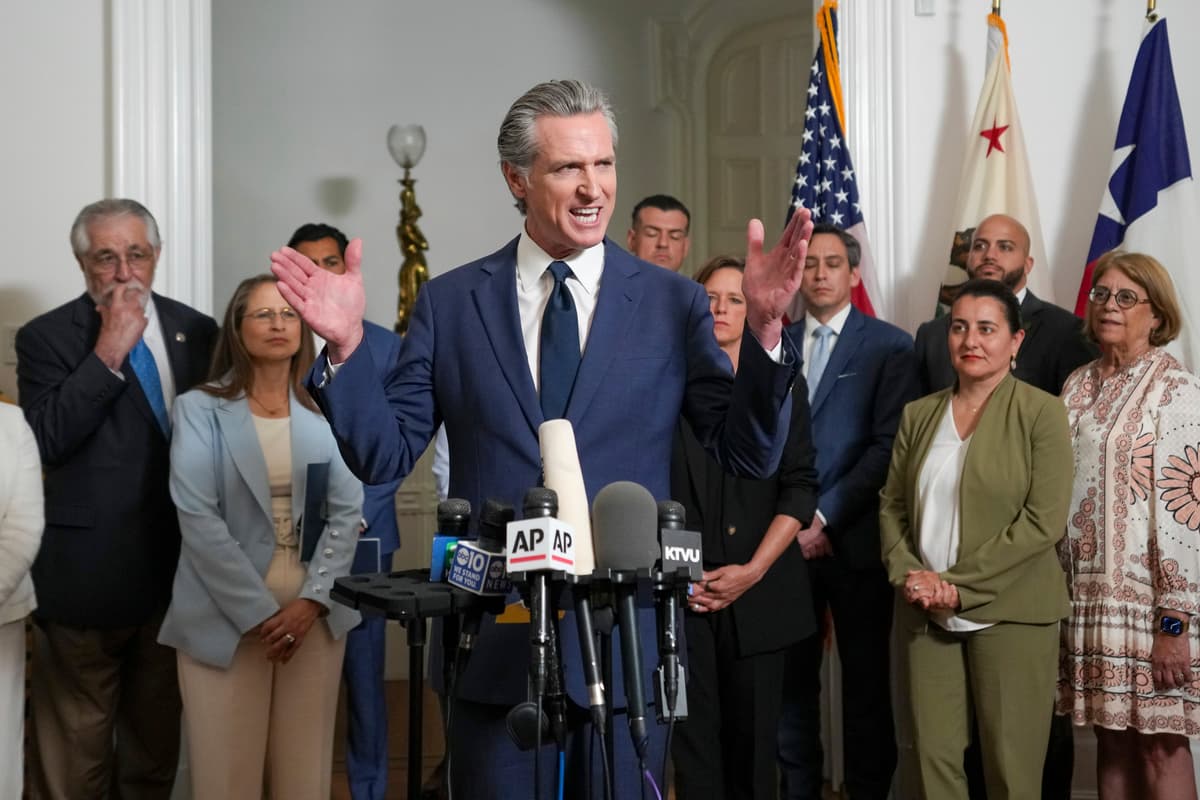California Governor Gavin Newsom is actively reshaping his political persona as he eyes the 2028 Democratic presidential nomination. In a noticeable shift, he is transitioning from his previously progressive stance to a more moderate position, aiming to attract independent voters disillusioned with both major parties.
His recent policy changes reflect this transformation. Notably, Newsom is softening his prior criticisms of the oil industry amidst rising gas prices, which could reach as high as $8 per gallon in California. The closures of two major refineries—Phillips 66 in Los Angeles by late 2025 and Valero in Benicia next year—have prompted concerns about fuel supply in the state, the second-largest gasoline market in the United States.
At a press conference last month, Newsom acknowledged California’s reliance on fossil fuels, stating, “We are all the beneficiaries of oil and gas. No one’s naive about that.” This marks a significant departure from his earlier assertions, where he characterized the climate crisis as a “fossil fuel crisis” at a 2023 United Nations summit.
In response to these market challenges, Newsom is currently negotiating within his party to propose legislation aimed at increasing oil production. This legislation could provide blanket environmental approval for oil wells, bypassing existing climate regulations that have hindered drilling projects. If successful, this initiative may receive legislative approval before the state session concludes in mid-September.
As Californians grapple with gas prices that currently average $4.49 per gallon—significantly above the national average of $3.16—the urgency for action has intensified. Nevertheless, Newsom faces opposition from over 120 environmental groups who have denounced his proposals as detrimental to air and water quality, characterizing them as an industry giveaway.
Beyond energy policies, Newsom’s actions in other areas also indicate a shift towards moderation. He recently hosted allies of former President Donald Trump on his podcast, engaging in discussions on topics such as restricting transgender athletes in women’s sports and denouncing calls to defund the police. These moves have raised eyebrows among progressives, who view them as a departure from his earlier positions.
Another significant policy change occurred in May, when Newsom proposed limiting healthcare coverage for undocumented immigrants, citing California’s $12 billion budget deficit. This proposal, which passed in June, contrasts sharply with his previous initiatives that had expanded healthcare access to all low-income adults, irrespective of immigration status. The program had initially cost the state $2.7 billion more than anticipated.
The governor has also adopted a more aggressive stance on homelessness, offering cities a blueprint to clear encampments and urging decisive action. “No more excuses,” he stated emphatically. “It is time to take back the streets.”
Critics of Newsom’s transformation are vocal. Norman Solomon, national director for the progressive group RootsAction, criticized the governor for compromising his principles in pursuit of the presidency. He remarked that Newsom seems “willing to throw basic decency under the 2028 campaign bus.”
As the political landscape evolves leading up to the 2028 election, Newsom’s pivot towards moderation highlights a broader strategy to connect with a diverse electorate. His continued actions and policy decisions will be closely monitored as he seeks to redefine his image on the national stage.







































































